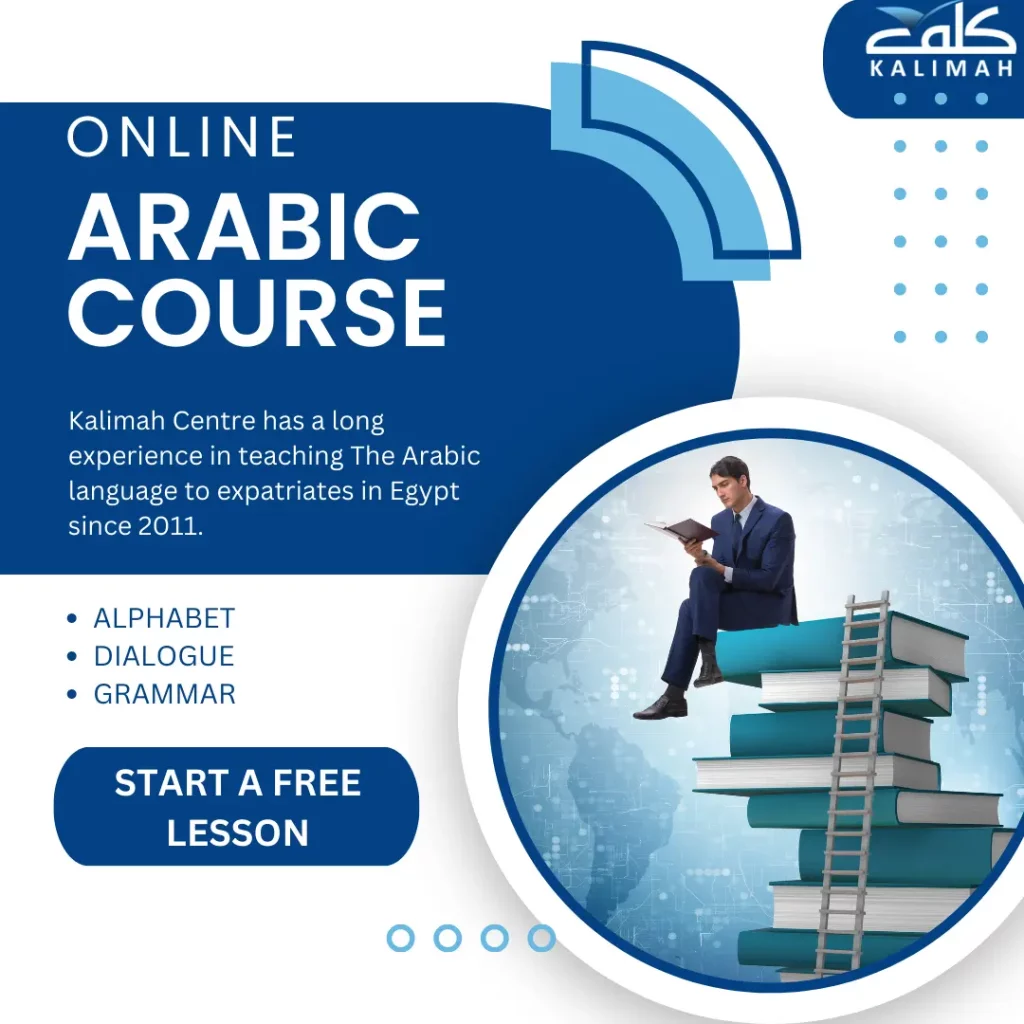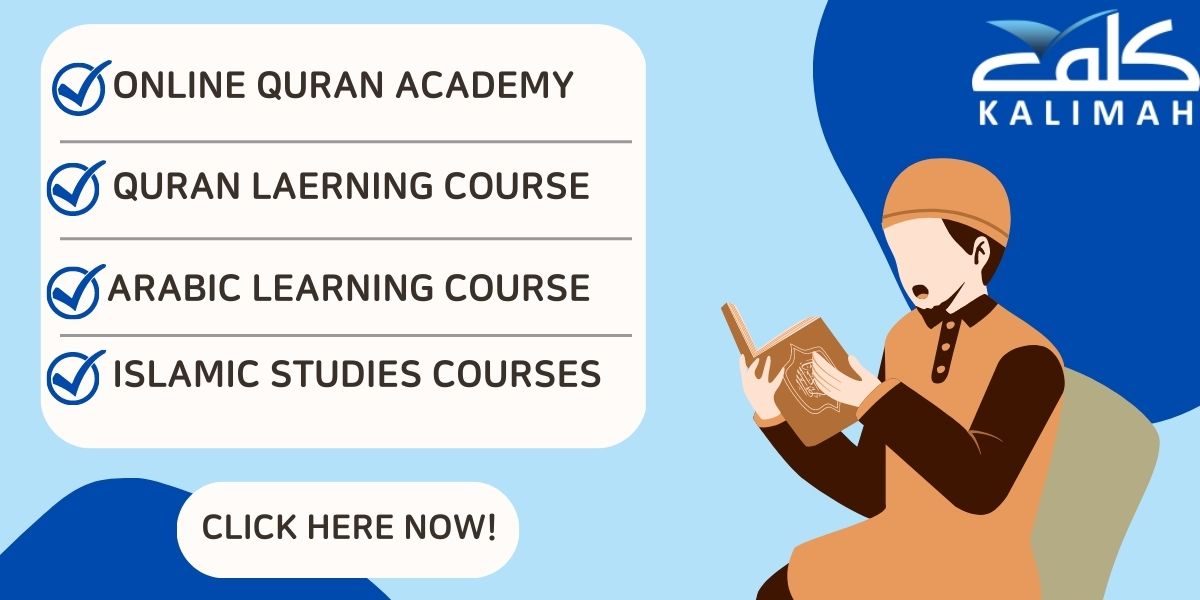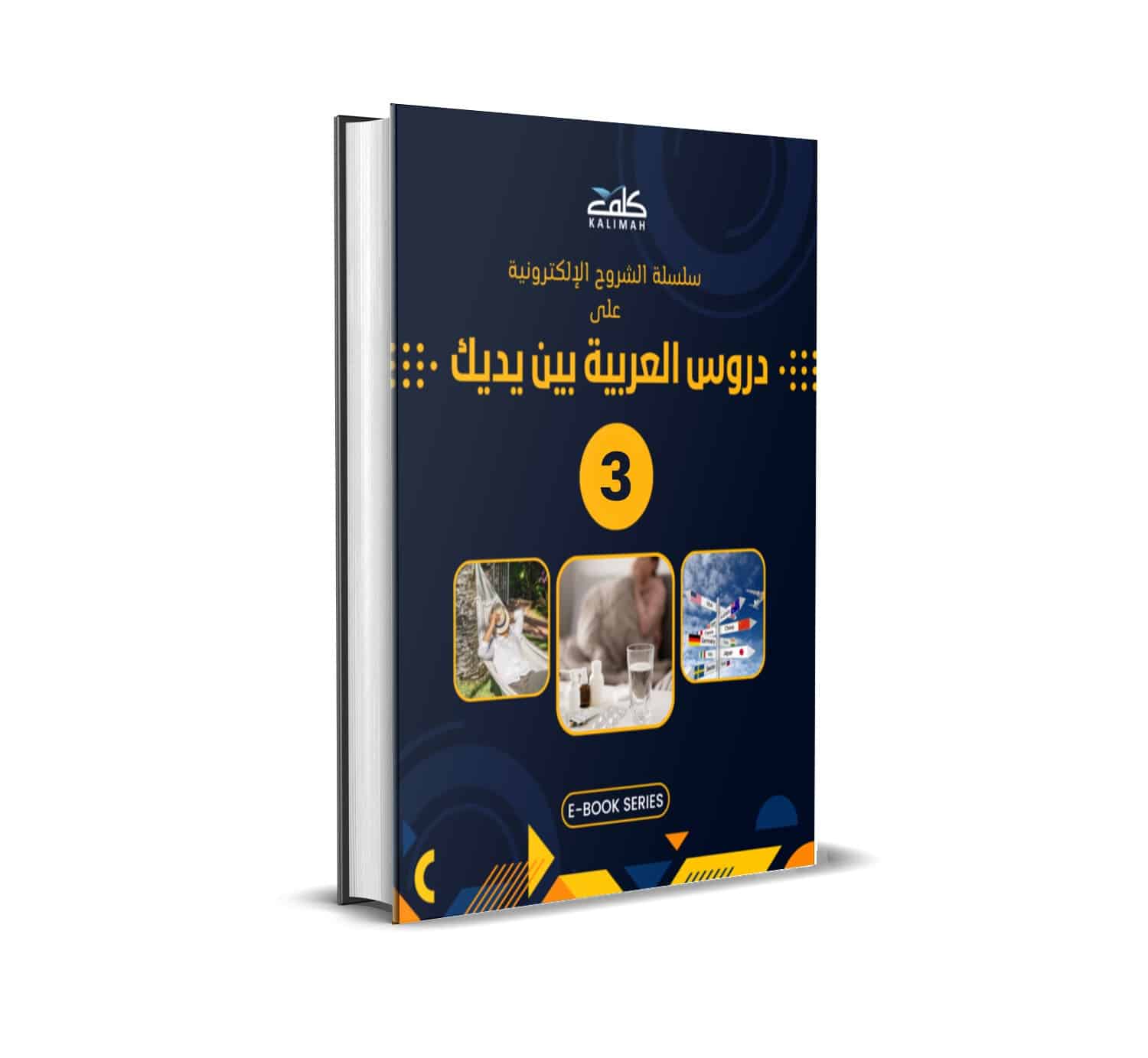In a nutshell: Want to learn Arabic fast? Dive in by mastering the alphabet, essential words, and basic grammar, then immerse yourself by speaking, writing, thinking, and listening to Arabic daily. This quick immersion approach will rapidly boost your skills, making you proficient in no time.
Do you want to learn Arabic FAST? Well, we have an effective solution here at Kalimah: the fastest way to learn Arabic basics is full immersion after laying a quick foundation. It’s like jumping into the sea to learn to swim! But how can you do this effectively?
You see, some people learn best by doing. They don’t want to study for years. They want to talk NOW! This is how children learn their first language – they just start talking! So, why not learn Arabic the same way?
I will share the fastest, most effective strategies to learn Arabic faster, from everyday conversations to reading and writing. We’ll delve into proven methods, answer your burning questions, and equip you to speak Arabic confidently in less time than you ever thought possible.
How to Learn Arabic FAST?
Here at Kalimah Center, we’ve found that the quickest way to learn Arabic is to start small and then jump right in. It’s like this:
- Letters (حروف – huruf): Learn the ABCs of Arabic. These are the building blocks of every word.
- Important Words (كلمات مهمة – kalimaat muhimmah )Just like you learned “mama” and “papa” first, we’ll teach you the most important Arabic words for kids to get you talking.
- Easy Grammar (قواعد بسيطة – qawa’id basiitah): We won’t make it hard. Just a few simple rules to help you build sentences.
- Useful Phrases (جمل مفيدة – jumal mufiidah): Think of these like your first words. “Hello,” “goodbye,” and other phrases you need every day.
Once you’ve got those basics down, it’s time for the real fun: diving headfirst into the rich world of Arabic culture!
Then, it’s time to jump in! We’ll help you:
- Talk, Talk, Talk (تكلم – takallamm): The more you speak, the better you’ll get.
- Write Every Day (اكتب – uktub): Even a few sentences about your day helps you learn.
- Think in Arabic (فكر – fakkir): Start dreaming in Arabic!
- Listen to Arabic (استمع – istami’): Podcasts, stories, the news… it all helps!
Now, you might be wondering, “Is this really the fastest way to learn Arabic?” Well, it’s certainly an exciting one! While there are other, more structured approaches, we’ve found that this immersive method works wonders for learners who crave a quick start and love diving into the deep end.
But Remember:
This is just ONE way to learn. It’s not for everyone. Some people like slow and steady steps. But if you’re ready to dive in and learn Arabic FAST, come with us! It’s an adventure, and we’ll be here to guide you.
So, are you ready to jump in? Let’s explore these essential letters, words, and phrases that will be your stepping stones in the Arabic sea!

Learn the Arabic Letters
The first step in learning Arabic Fast is familiarizing yourself with the Arabic alphabet. Mastering the letters is crucial as they form the foundation of reading, writing, and pronunciation.
The Arabic alphabet consists of 28 letters, each with a unique shape depending on its position in a word (initial, medial, final, or isolated).
| Letter | Isolated | Initial | Medial | Final | Example | Transliteration | Translation |
| أ | أ | أ | ـأ | ـا | أسد | asad | lion |
| ب | ب | بـ | ـبـ | ـب | باب | baab | door |
| ت | ت | تـ | ـتـ | ـت | تفاح | tuffah | apple |
| ث | ث | ثـ | ـثـ | ـث | ثعلب | tha’lab | fox |
| ج | ج | جـ | ـجـ | ـج | جبل | jabal | mountain |
| ح | ح | حـ | ـحـ | ـح | حب | hub | love |
| خ | خ | خـ | ـخـ | ـخ | خبز | khubz | bread |
| د | د | د | ـد | ـد | درس | dars | lesson |
| ذ | ذ | ذ | ـذ | ـذ | ذهب | dhahab | gold |
| ر | ر | ر | ـر | ـر | رجل | rajul | man |
| ز | ز | ز | ـز | ـز | زهر | zahr | flower |
| س | س | سـ | ـسـ | ـس | سمك | samak | fish |
| ش | ش | شـ | ـشـ | ـش | شمس | shams | sun |
| ص | ص | صـ | ـصـ | ـص | صوت | sawt | sound |
| ض | ض | ضـ | ـضـ | ـض | ضوء | daw’ | light |
| ط | ط | طـ | ـطـ | ـط | طائر | ta’ir | bird |
| ظ | ظ | ظـ | ـظـ | ـظ | ظرف | zarf | envelope |
| ع | ع | عـ | ـعـ | ـع | علم | ‘ilm | knowledge |
| غ | غ | غـ | ـغـ | ـغ | غابة | ghaba | forest |
| ف | ف | فـ | ـفـ | ـف | فاكهة | fakiha | fruit |
| ق | ق | قـ | ـقـ | ـق | قلب | qalb | heart |
| ك | ك | كـ | ـكـ | ـك | كتاب | kitaab | book |
| ل | ل | لـ | ـلـ | ـل | ليل | layl | night |
| م | م | مـ | ـمـ | ـم | مدرسة | madrasa | school |
| ن | ن | نـ | ـنـ | ـن | نهر | nahr | river |
| هـ | هـ | هـ | ـهـ | ـه | هواء | hawa’ | air |
| و | و | و | ـو | ـو | ورد | ward | rose |
| ي | ي | يـ | ـيـ | ـي | يد | yad | hand |
To practice, write each letter repeatedly and say the corresponding sound out loud. This will help reinforce your memory and improve your pronunciation.
Kalimah Center’s Arabic course offers a variety of resources to help you build a strong foundation, including:
- Tracing Pages: Practice writing each letter in its various forms to develop muscle memory and perfect your penmanship.
- Interactive Exercises: Reinforce your learning through engaging activities that test your understanding of letter shapes and sounds.
With Kalimah Center’s structured approach and comprehensive materials, you’ll gain the confidence and skills needed to read, write, and communicate in Arabic.
Learn and Memorize the Most Important and Popular Words
Vocabulary is the building block of any language. Start by learning and memorizing the most commonly used Arabic words. Here are 30 essential words to get you started:
| Arabic Word | Transliteration | Translation |
| مرحبا | marhaban | hello |
| شكرا | shukran | thank you |
| نعم | na’am | yes |
| لا | la | no |
| من فضلك | min fadlik | please |
| آسف | asif | sorry |
| كيف حالك؟ | kayfa halak? | how are you? |
| بخير | bikhayr | fine |
| صباح الخير | sabah al-khayr | good morning |
| مساء الخير | masa’ al-khayr | good evening |
| مع السلامة | ma’a as-salama | goodbye |
| اسم | ism | name |
| بيت | bayt | house |
| مدرسة | madrasa | school |
| كتاب | kitaab | book |
| معلم | mu’allim | teacher |
| طالب | taalib | student |
| ماء | maa’ | water |
| طعام | ta’am | food |
| شاي | shay | tea |
| قهوة | qahwa | coffee |
| سيارة | sayyara | car |
| شارع | shari’ | street |
| سوق | suq | market |
| صديق | sadiq | friend |
| عائلة | a’ila | family |
| وقت | waqt | time |
| عمل | ‘amal | work |
| لعب | la’ib | play |
| يوم | yawm | day |
Make flashcards with these words, their transliterations, and translations. Review them daily to build your vocabulary rapidly.
Learn the Top 10 Most Important and Famous Rules
Understanding grammar rules is essential for constructing sentences and communicating effectively. Here are the top 10 most important Arabic grammar rules with examples:
- Definite Article “Al-” (ال): Used to indicate that a noun is specific.
- Example: الكتاب (al-kitaab) – the book
- Pronouns: Learn personal pronouns to refer to yourself and others.
- Example: أنا (ana) – I, أنتَ/أنتِ (anta/anti) – you (m/f)
- Possessive Suffixes: Indicate ownership by adding suffixes to nouns.
- Example: كتابي (kitaabi) – my book, كتابك (kitaabak/kitaabik) – your book (m/f)
- Verb Conjugation: Arabic verbs change based on tense and subject.
- Example: أَذهبُ (adhhab) – I go, ذَهَبَ (dhahaba) – he went
- Gender Agreement: Nouns and adjectives must agree in gender and number.
- Example: رجل طويل (rajul tawil) – tall man, امرأة طويلة (imra’a tawila) – tall woman
- Plurals: Regular and irregular plural forms exist.
- Example: كتاب (kitaab) – book, كتب (kutub) – books
- Adjectives Follow Nouns: In Arabic, adjectives come after the nouns they describe.
- Example: بيت جميل (bayt jameel) – beautiful house
- Dual Form: Arabic has a special form for two of something.
- Example: كتابان (kitaabaan) – two books
- Prepositions: Common prepositions include في (fi) – in, على (ala) – on, إلى (ila) – to.
- Example: في البيت (fi al-bayt) – in the house
- Negation: Use لا (la) for negation in present tense, and لم (lam) for past tense.
- Example: لا أريد (la ureed) – I don’t want, لم أذهب (lam adhhab) – I did not go
By understanding these rules, you’ll be able to form correct and meaningful sentences in Arabic.
Learn the Most Famous Daily Sentences
Practical sentences used in daily conversations are invaluable. Here are 30 essential daily sentences:
| Arabic Sentence | Transliteration | Translation |
| كيف حالك؟ | kayfa halak? | How are you? |
| أنا بخير، شكرا | ana bikhayr, shukran | I am fine, thank you |
| ما اسمك؟ | ma ismuka/ismuki? | What is your name? |
| اسمي محمد | ismi Muhammad | My name is Muhammad |
| أين تعيش؟ | ayna ta’eesh? | Where do you live? |
| أعيش في لندن | a’eesh fi London | I live in London |
| كم عمرك؟ | kam ‘umruk? | How old are you? |
| عمري ثلاثون سنة | umri thalathoon sana | I am thirty years old |
| هل تتكلم العربية؟ | hal tatakallam al-arabiya? | Do you speak Arabic? |
| نعم، أتكلم العربية قليلا | na’am, atakallam al-arabiya qalilan | Yes, I speak a little Arabic |
| من فضلك، أين الحمام؟ | min fadlik, ayna al-hammaam? | Please, where is the bathroom? |
| الحمام هناك | al-hammaam hunak | The bathroom is there |
| ماذا تعمل؟ | madha ta’mal? | What do you do? |
| أنا مدرس | ana mudarris | I am a teacher |
| متى ستذهب إلى العمل؟ | mata satadhhab ila al-‘amal? | When will you go to work? |
| سأذهب إلى العمل الساعة الثامنة | sa’adhhab ila al-‘amal al-sa’a al-thamina | I will go to work at eight o’clock |
| ماذا تحب أن تأكل؟ | madha tuhibb an ta’kul? | What do you like to eat? |
| أحب أكل الفواكه | uhibb akl al-fawakih | I like to eat fruits |
| كيف كان يومك؟ | kayfa kana yawmuka? | How was your day? |
| كان يومي جيد جدا | kana yawmi jayid jiddan | My day was very good |
| هل تحتاج إلى مساعدة؟ | hal tahtaj ila musaa’da? | Do you need help? |
| نعم، من فضلك | na’am, min fadlik | Yes, please |
| كم الساعة؟ | kam al-sa’a? | What time is it? |
| الساعة الثالثة | al-sa’a al-thalitha | It is three o’clock |
| هل تحب القراءة؟ | hal tuhibb al-qira’a? | Do you like reading? |
| نعم، أحب القراءة | na’am, uhibb al-qira’a | Yes, I like reading |
| ماذا ستفعل غدا؟ | madha sataf’al ghadan? | What will you do tomorrow? |
| سأذهب إلى السوق | sa’adhhab ila al-suq | I will go to the market |
| كيف الجو اليوم؟ | kayfa al-jaw al-yawm? | How is the weather today? |
| الجو مشمس | al-jaw mushmis | The weather is sunny |
Practicing these sentences will help you navigate everyday situations and enhance your conversational skills.
At Kalimah, we know that language learning is most effective when it’s relevant to your life. That’s why our Arabic courses feature an excellent approach to teaching common phrases. We use vivid illustrations to connect phrases with the specific situations where they’re used, making learning interactive and memorable. Take a look at this example from our Arabic Language curriculum!
Immersion: Living the Language
At Kalimah, we believe that immersion is essential. Picture yourself walking through a bustling souk (سوق – market), the air filled with the sounds of vendors calling out their wares in Arabic. You hear phrases like “Kam hadha?” (كم هذا؟ – How much is this?) and “Shukran” (شكرا – Thank you).
To learn to speak Arabic fast, practice speaking daily. Join language exchange programs, participate in Arabic conversation clubs, or even use language learning apps. The more you speak, the more confident you become.
مع السلامة، ورحلة سعيدة في عالم اللغة العربية! (Ma’a as-salama, wa rihlatan sa’eedatan fi ‘alam al-lughah al-‘arabiyyah! – Goodbye, and have a happy journey in the world of the Arabic language!).
How can I learn Arabic fast and free?
The fastest way, in our experience, is a combination of quick immersion and laying a solid foundation. Start by learning the essentials we mentioned earlier: the alphabet, common words, basic grammar, and essential phrases. Then, dive headfirst into the world of Arabic!
Here are some free ways to immerse yourself:
- Watch Arabic videos on YouTube: There are channels dedicated to language learning, cultural insights, and even funny Arabic cartoons for kids !
- Listen to Arabic podcasts: Many are available for free on streaming platforms.
- Read Arabic news articles or blogs online: Start with simple topics and work your way up.
- Chat with native speakers: Look for language exchange partners online or join Arabic language forums.
How long does it take to learn Arabic?
Reaching an intermediate level in Arabic typically requires more than 400 hours of dedicated study. However, this is just an estimate, and the actual time can vary greatly depending on several factors, including your learning style, motivation, and the resources you use. Learning independently can be slower compared to learning with experienced teachers in a well-structured course. A good course provides a clear roadmap, personalized feedback, and opportunities for interaction and practice, which can significantly accelerate your progress.
Can I learn Arabic in 3 months?
While mastering Arabic in 3 months isn’t realistic, you can absolutely make significant strides in that time. You can build a strong foundation in the language, setting yourself up for continued progress towards intermediate and eventually advanced levels. To achieve substantial progress in Arabic, it’s recommended to dedicate at least a year of consistent study. This allows you to delve deeper into grammar, vocabulary, and cultural nuances, ultimately leading to a more comprehensive understanding and proficiency in the language.
Thousands of Students have Mastered Arabic with Kalimah Center
At Kalimah Center, we transform language learning into an enriching and engaging experience. Our seasoned teachers and innovative teaching methods make mastering Arabic accessible and enjoyable for everyone.
Why Choose Kalimah Center?
- Proven Excellence: With over a decade of experience and thousands of successful students worldwide, our expertise ensures you receive top-notch education.
- Comprehensive Courses: From the basics to advanced societal topics, our courses cover everything you need to become proficient in Arabic.
- Flexible Learning: Our online format allows you to learn at your own pace, anytime and anywhere.
- Interactive Approach: Engaging PowerPoint presentations, direct dialogue training, and personalized feedback keep you motivated and progressing.
Start your Arabic journey with Kalimah Center today and experience the difference!
Conclusion:
If you want to learn Arabic quickly, the fastest method involves full immersion after establishing a basic foundation. This approach mirrors how children learn their first language—by jumping right in and speaking. Begin with the Arabic alphabet, essential words, simple grammar rules, and useful phrases.
Once you’ve grasped these basics, dive into conversations, practice writing daily, think in Arabic, and listen to Arabic media. This immersive method can rapidly boost your confidence and proficiency in Arabic.
Starting with the basics is crucial: learn the alphabet, master key vocabulary, and understand fundamental grammar rules. Practice speaking and writing daily to reinforce your learning.
Engaging with native speakers and immersing yourself in Arabic culture through media like podcasts and videos will accelerate your learning process. Although learning Arabic fluently in three months is ambitious, significant progress can be made with consistent effort and the right resources.














